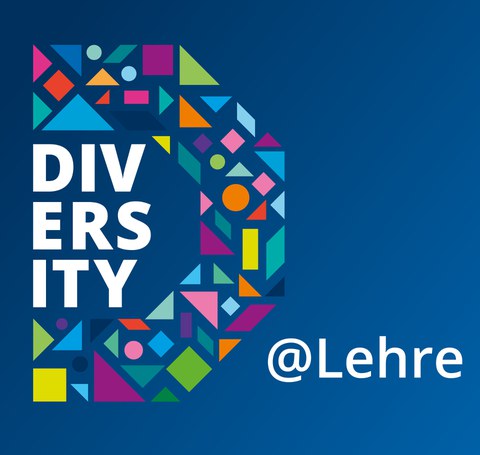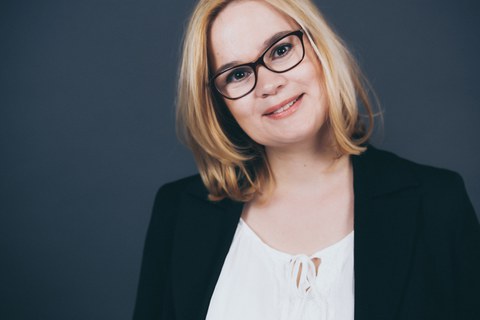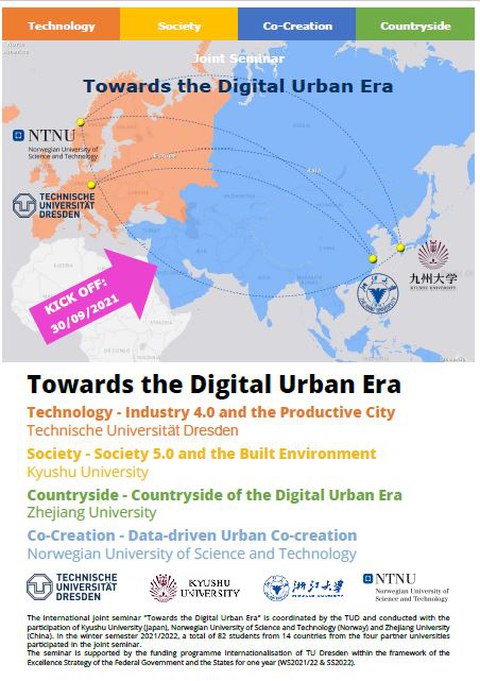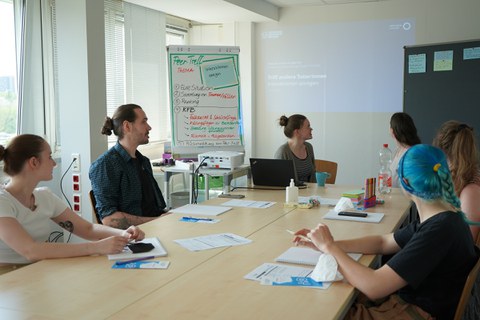Awards for diversity-sensitive teaching 2022
As in previous years, TU Dresden will once again award the Best Practice Award for diversity-sensitive teaching. The teaching award has been designed to honor lecturers and teaching concepts that address diversity, or one or several aspects of diversity (e.g. gender, inclusion, origin, family responsibilities, etc.) in line with TU Dresden’s Diversity Strategy 2030. In doing so, the courses and lecturers help to raise awareness among students to diversity in everyday university (and societal) life. At the same time, the teaching award is intended to effectively expose the high relevance of diversity-sensitive aspects as part of excellent teaching for all students.
Prize winner:
Beatrice Schuchardt, Französische Literatur- und Kulturwissenschaft: Ciné- Diversité? Diversität in Französischen Filmkomödien (Proseminar)
The focus of the proseminar "Ciné-Diversité? Diversity in French Film Comedies" in the winter semester 2021/22 was a critical examination of the portrayal of gender and cultural diversity as well as disability in contemporary French comedies from 2010 onwards. In analyzing productions that were successful in France as well as internationally, such as "Pretty Best Friends", the "Monsieur Claude" series or "Do You Know the Béliérs", the economic component of the marketing of diversity by the film industry was also reflected upon. The seminar explored why the genre of comedy is particularly suited to the portrayal of diversity and what its success and popularity are based on. In a low-threshold, hybrid format, we discussed interactively and with the use of collaborative online tools how diverse the film examples we looked at really are. We also focused on the production level, i.e. on the actors involved in front of and behind the camera.
Do the films undermine stereotypes and clichés or do they affirm them? Can and do they contribute to the diversification of society - or do their 'diverse' characters primarily serve the purpose of entertainment? Do the films testify to an increased awareness of diversity? And what about our own diversity as a (university) audience? Where are our 'blind spots'? Does being diverse automatically mean immunity to stereotypical thinking and prejudice? We explored these and subsequent questions together.
During the course, the participants themselves became researchers, working in small groups on a self-selected film example and discussing the results of their work with the plenary. All seminar results, debates and questions were recorded as mind maps before, during and after the synchronous sessions, which secured and visualized learning results, recorded discussed and open questions and helped to make the red thread of the course visible and to lie stringently. Questions could thus be asked, discussed and clarified even after the learning units. Content was recorded in complex and simple language. Synchronous and asynchronous sessions, face-to-face and online teaching alternated. Hybrid participation was possible in all sessions, which was welcomed by (temporarily) ill students and participant:s with personal challenges. Contributions were possible in written and oral form to reduce inhibitions.
Appreciations:
Xiaoping Xie & Runzhu Gu, Wissenschaftsarchitektur: Towards the Digital Urban Era (international joint seminar)
In the winter semester 2021/2022, students from four universities, namely TU Dresden (coordinator), Kyushu University (Japan), Norwegian University of Science and Technology (Norway) and Zhejiang University (China) participated in the joint seminar "Towards the Digital Urban Era". The hybrid form of teaching and learning has facilitated cross-university collaboration - including discussions, workshops and questionnaire surveys - to enable timely interaction between teachers and students across university boundaries, overcoming the time and space constraints for joint teaching and learning on the Asian and European continents. The multicultural teaching and learning environment provides intensive training for seminar participants in thinking across cultural and socio-economic boundaries and in working together in international teams. The interdisciplinary teaching resources of the four universities were utilised to provide students with an in-depth understanding of the various facets of the digital urban era.
The prize money will be used by the university group, among other things, to continue the joint teaching programme and also to develop further collaborations in teaching and research within the framework of this international partnership.
Prof. Dr. Moritz Ingwersen, Professur Literatur Nordamerikas SK Future Studies and Dr. Alison Sperling (TU Berlin) : Global Weirding: Human-Environment Estrangements in Literature, Art and Theory
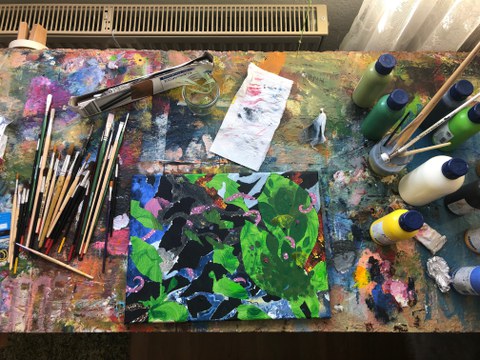
Münning, Selina. Layers. 2022. Prozessbild. Acryl auf Leinwand. 40 x 30 cm. Studentischer Seminarbeitrag.
The project “Global Weirding: Human-Environment Estrangement in Literature, Theory and Art” was an interdisciplinary seminar co-taught in English by Jun.-Prof. Dr. Moritz Ingwersen (North American Literature/Future Studies, TUD) and Dr. Alison Sperling (Cultural Studies/Feminist Science Studies, TU Berlin), which was accompanied by a lecture series and class visits from leading international scholars in the environmental humanities. The seminar aimed to diversify artistic and philosophical perspectives on the cultural perception and negotiation of the climate crisis in conjunction with questions of social justice. Linking up with the literary genre of New Weird Fiction, this course was guided by the assumption that artistic and literary modes of the surreal, the uncanny, the speculative, and the strange are exceptionally useful in mediating and fostering an awareness of the systemic and social entanglements of climate change. In order to sensitize students for the political dimension of embodied and situated human-environment relations in the anthropocene, a particular focus was laid on works by BIPOC and LGBTQ authors and artists.
The accompanying Global Weirding Lectures provided an opportunity for direct exchange between students and renowned North American scholars and authors whose texts provided the basis for the seminar. With the aim of addressing a broad spectrum of student competencies students credits could be acquired by developing and submitting creative approaches to the aesthetics of global weirding. Throughout the course student thus produced a compelling archive of collages, sculptures, short stories, paintings, drawings, and songs that critically and creatively engaged the experience of “post-normal” human-environment relationships. A pedagogical reflection on the thematic, theoretical, and methodological conception of this course was presented at the 2022 annual meeting of the Science Fiction Research Association in Oslo. This project was funded by the IMPRESS Virtual Exchange program for the internationalization of teaching at TU Dresden.
Melanie Ludwig, Zentrum für Weiterbildung: TUTORING- Methodisch-didaktische Basisqualifizierung für Fachtutor:innen aller Studiengänge der TU Dresden
The basic goal of the TUTORING basic qualification is to impart didactic-methodical basic competences to subject tutors. A framework is created for the exchange of ideas and experiences, in which the joy of teaching and the practice of exercises are in the foreground. Diversity-sensitive interaction is encouraged by consciously using female tutors in courses for engineering and STEM subjects to counteract stereotyping and to address the issue of women and their self-image in teaching. Varied teaching methods are used to encourage the broadest possible participation by tutors. There is a mix of asynchronous and synchronous offerings. Students with challenging weekly schedules, young families as well as international students are given the opportunity to engage with the content with the help of the teaching/learning materials made available online and to use these to repeat the content. Peer meetings for the exchange of content and expertise and the use of meta-tutors promote the networking of young teachers. Individual coaching and observation are offered for special needs. Evaluation results show that in the past TUTORING qualification offers there was a balanced gender ratio among the registered participants. We are very pleased about the recognition and want to invest it in further offers for tutors on the topic of diversity sensitivity.
The award ceremony will take place during the next senate meetings on June 8th 2022. The Vice-Rectorate University Culture and the Staff unit Diversity Management congratulate the winners!
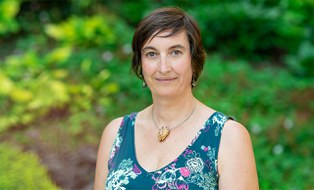 © Crispin Iven Mokry
© Crispin Iven Mokry
Head of Diversity Management
NameDr. Sylvi Bianchin
Send encrypted email via the SecureMail portal (for TUD external users only).
Unit 9.3 Diversity Management
Unit 9.3 Diversity Management
Visiting address:
Verwaltungsgebäude 3, Room 201 Nöthnitzer Str. 43
01187 Dresden

